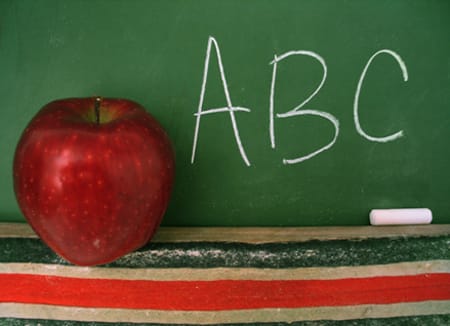A Jewish boy becomes obligated in mitzvot when he reaches the age of 13, and a Jewish girl at the age of 12. This is the age when a person attains “da’at” – understanding and responsibility for actions. This is also the age of legal majority, when a youth is no longer subject to his or her parents and is legally entitled to live independently.
However, younger children are expected to fulfill the commandments according to their ability and understanding, and their parents are obligated to raise them in the ways of the Torah, so that when they become independent they will be fully capable of carrying out the Law.
This obligation is known as the commandment of “chinuch”. Today we usually translate this word as education or instruction, and this seems to be one meaning it has in Scripture. When Avram had to save Lot from his captors he sent out “chanichav”, his disciples (Bereshit 14:14).
In other places in the Torah the word would be better translated as “inauguration” or “dedication”. For instance, the Torah mentions the chanukah of the altar (Bamidbar 7:10), and this is the source of the name of the Chanukah holiday. Also mentioned is the chanukah of a new house (Devarim 20:5).
Both senses of this word find expression in the rules of chinuch. Parents need to teach the child how to perform the mitzvot, and also to accustom the youngster to actually carry them out.
On the education side, parents are called on to say Birkat HaMazon for their children, in order to teach them how. This doesn’t accustom the child to the mitzva, because the child is not himself saying the blessing and an adult can’t fulfill the obligation to “bench” by having someone else say it, unless that other person also ate. (SA OC167:19.) Adults can’t have someone “bench” for them (Mishna Brurah 167:93; see Rosh Hashana 29b).
Another example is fasting on Yom Kippur. Young children are educated to fast a little bit, for a period of time that makes them conscious of the fast but is not oppressive. This teaches them but doesn’t “inaugurate” them in the mitzva, which is only fulfilled if no food is eaten from sunset to the following nightfall (Yoma 82a; Shulchan Aruch OC 616:2).
Yet in other places we find that children must fulfill mitzvot exactly as adults do. For example, our Sages learned some of the rules of sukkah from the sukkah which Queen Heleni built to accustom her sons to this mitzva (Sukkah 2b and Ritva). And our law tells us that the four species given to a child should be completely kosher – although the child can learn how to hold and wave them even if there is a slight defect (Biur Halakha 657).
Another example: The Talmud relates that Shammai made a sukkah for his infant son (Sukkah 28b). This initiates the child into the performance of the mitzva, but doesn’t teach him anything.
Difference Between Children and Adults
Which of these two aspects, education and inauguration, is more important? It seems that there is a difference between children and grownups. Regarding children, education is the most important thing. We see this from the case where there is a conflict between the two aspects. Saying a blessing for a child is effective in education but actually contradicts the idea of “inauguration” since the mitzva is not actually fulfilled this way. In time, the child will learn to apply his or her learning in practice.
But for adults the most important thing is the actual performance of the mitzva. So while it is important to educate adults, this cannot generally supersede their actual obligation. Indeed, for an adult allowing “teaching” to supersede “doing” can have a negative educational message, because it may seem to diminish the importance of actual performance of the commandments.
“Educate The Child According To His Way”
One salient feature of the obligation to educate children in mitzva performance is that the obligation is tailored to the abilities of the child. “When a child knows how to wave a lulav, he is obligated to take a lulav; to wrap himself, he is obligated in tzitzit; to observe Tefillin, his father obtains for him Tefillin; when he knows how to talk, his father teaches him Torah and Shema” (Sukkah 42b).
When the book of Mishlei tells us that we must educate a child in the way of the Torah so that he will fulfill it as an adult, it adds an important qualifier: “Educate the child according to his way, then when he ages he will not turn from it” (Mishlei 22:6). This verse teaches us about both the means and the ends of education. We educate the child in his way, in a way which suits his abilities and inclinations; the objective is that he should not turn “from it” – from his own way. Even as an adult, every individual has his or her own way in carrying out the Torah, and one person’s approach will not suit someone else.
Rabbi Asher Meir is the author of the book Meaning in Mitzvot, distributed by Feldheim. The book provides insights into the inner meaning of our daily practices, following the order of the 221 chapters of the Kitzur Shulchan Arukch.
The words of this author reflect his/her own opinions and do not necessarily represent the official position of the Orthodox Union.
